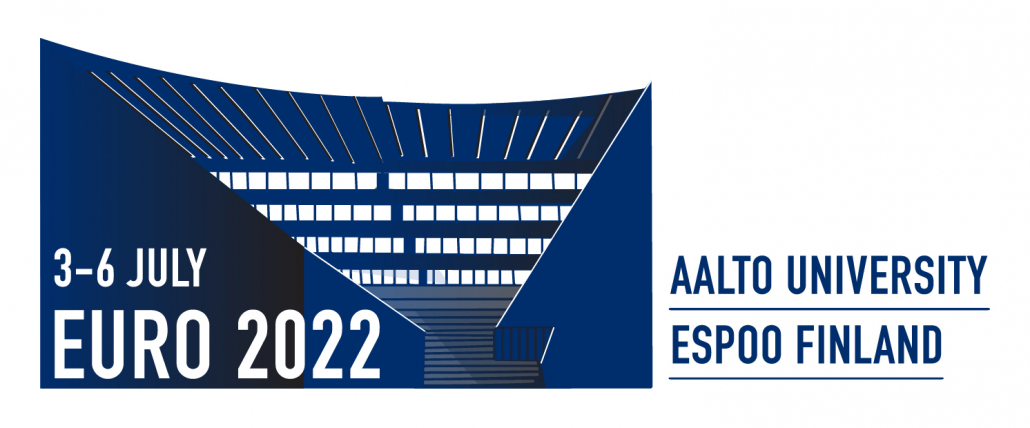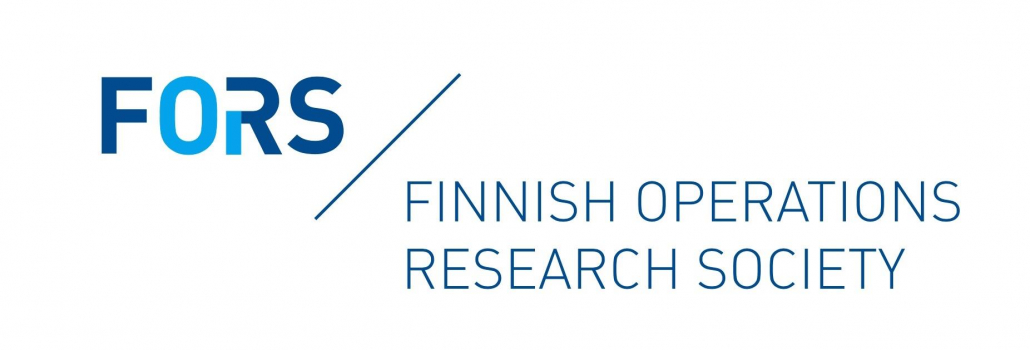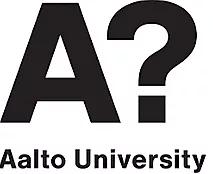EURO 2022 Lightning Talks
Greening OR: Artificial intelligence, decision support and sustainable digitalization, Stefan Walter
Analytics and Optimization for Societal Impact Helena Ramalhinho Dias Lourenco
Are optimality concerns overrated for optimization solutions in practice? Fanie Terblanche
Planting a million trees: how UPM Uruguay schedules seedling deliveries, Yue Zhou-Kangas
SuCCESs – Modelling Pathways to a Sustainable Society, Nadine-Cyra Freistetter
What’s the value of evaluating medical technologies? Alec Morton
Talk problems to me: Understanding user needs for OR software development Sander van Aken
Today´s competence requirements are wide – A growing challenge to OR practitioners Raimo Hämäläinen
Integrated production and transportation scheduling in the compound feed industry Jasper van Doorn
Decision-making for advanced health security Gilberto Montibeller
Blacklisting Products in e-commerce: A mathematical approach Ahmet Çinar
How can our hunger for data also solve world hunger? Marleen Balvert
DETAILS
Vicious cycles and Systemic Risk in a Pandemic – from problem structuring to agreed action, Colin Eden Experts in different organisations and of different disciplines share their knowledge about pandemic risks. 15 experts share their causal knowledge same-time/different place using the internet and causal mapping software Strategyfinder. Analysis reveals over 5 million interacting vicious cycles. Further analysis shows which vicious cycles and which risks need mitigating to have the biggest impact. The experts focus strategy development on these risks and agree action packages that are implemented.
This talk is based on work undertaken to address Covid-19 risk management strategy in Norway.
Colin is Emeritus Professor at Strathclyde Business School. After PhD in dynamic programming he became an OR practitioner/consultant. Joining academia led to developing ‘cognitive mapping’ for problem structuring when working with an individual client. His current focus is on working with teams to facilitate fast solution finding to messy/complex problems.
Managing intramonthly operations of a liquified natural gas terminal: the mathemagic behind a multiple criteria decision problem, Slawomir Pietrasz
Expert in liquified natural gas (LNG), Elengy owns and operates three terminals in France. Offering flexibility to their customers, how could an additional gas shipment fit in the already established monthly programme? To handle intramonthly perturbation of terminal operations, ENGIE has developed a method to determine the feasibility of unloading a carrier with shipment volume, unloading date and a gas emission profile. The approach to this multiple criteria decision problem combines a multi-period linear mathematical programme with dichotomy. According to the selected strategy, the algorithm computes a feasible solution by relaxing one of the desired criteria.
Nurtured by Polish folk music and a strong DIY culture, Slawomir has developed a passion for magic, mathematics and Latin dances. European polyglot, he combines operation research with artificial intelligence to optimize energy networks at ENGIE. He loves lecturing statistical learning at CentraleSupelec in France, where he graduated.
Greening OR: Artificial intelligence, decision support and sustainable digitalization, Stefan Walter
“Sustainable digitalization” is about adopting digital technologies in ways to meet economic and green commitments. AI can be used to automate according to principles of resilience, sustainability and regeneration of resources. Associated decision support systems provide necessary control and transparency, real-time analysis and early warnings of expected deviations and related solutions.
This talk introduces the knowlEdge EU project, that is developing a platform that meets the need for AI solutions for decision support in industry and supply chains. These solutions emphasize interaction with human actors. This enables comprehensive learning, the ability to adapt to changing conditions and sustainable value creation.
Stefan is a Senior Scientist in VTT’s Intelligent Supply Chains and Logistics research team, which focuses on agile and sustainable supply chain responses through cognitive technologies. He has worked in several management and consultancy positions in the logistics industry and has held both full-time and adjunct teaching positions.
Analytics and Optimization for Societal Impact Helena Ramalhinho Dias Lourenco
Actually, the planet and the population are facing important challenges related to high pollution, increasing aging and risk population, frequent health issues and pandemics, depopulation of rural areas and overpopulation in cities, food security, conflicts in many areas with the need of assistance, etc.. These challenges need an efficient response by the society. How can Analytics and Optimization help to solve these problems? How can Analytics impact the society? Analytics and Optimization should be part of the general response of the governments and the society to these problems, helping making better decisions and leading to a high positive impact on the society.
Helena is a Full Professor at Universitat Pompeu Fabra (UPF). She has a Ph.D. in Operations Research from Cornell University, New York, USA. Helena has published many articles in international scientific journals. Her more recent projects are related to Analytics for Social Good, in the Social and Health Care sector collaborating with several organizations as the Barcelona City Council.
Are optimality concerns overrated for optimization solutions in practice? Fanie Terblanche
The standard approach to developing and deploying optimization solutions typically starts with formulating an explicit model and solving it to optimality with a test problem instance. If it becomes clear from validation tests that computing times are impractical, the next step is usually to develop a heuristic approach. In many cases, however, a heuristic approach is pursued right from the start based on the argument that uncertainty in the data negates the benefits of solving optimization problems to optimality.
Some of these misconceptions are addressed in this talk, and a hybrid approach for incorporating heuristic approaches in an exact framework is discussed.
Planting a million trees: how UPM Uruguay schedules seedling deliveries, Yue Zhou-Kangas
UPM Uruguay uses Eucalyptus fibre harvested from its own 300 plantations. The harvested trees are replaced with genetically suitable seedlings raised in 14 nurseries. For the replacement, UPM plans and executes weekly deliveries for 1M seedlings on trucks traveling a combined distance of up to 18000 kilometres.
This scheduling could be modelled as a multi-depot capacitated vehicle routing problem with time window; but the huge scale of the challenge coupled with tight planning deadlines makes this impractical. I’ll describe how we approached the problem, successfully automating the planning, providing feasible delivery schedules and significantly reducing the manual planning effort.
Being a stationery lover, Yue cannot resist beautiful notebooks and postcards. When she received her PhD in Mathematical Information Technology, she had no vision that someday she will have a place in the paper industry. But now she works as a specialist in Advanced Analytics in UPM.
SuCCESs – Modelling Pathways to a Sustainable Society, Nadine-Cyra Freistetter
Cutting greenhouse gas emissions and removing carbon from the atmosphere is the pressing quest of our times. We develop a new computational model called SuCCESs, that calculates scenarios of reaching sustainability goals until 2100. SuCCESs is a large-scale, open source, linear programming model that will be able to assess the consequences of climate change mitigation strategies and their mutual amplifications or trade-offs by modelling a society that cost-efficiently balances emission reductions and carbon sequestration within energy, land-use, and material production sectors. Here, we present future plans and applications, current stage and first results of the SuCCESs model.
Nadine-Cyra Freistetter is a doctoral researcher at the Finnish Meteorological Institute. With degrees in physics and environmental management and ecotoxicology, she specializes in climate change and sustainability modelling in long-term scenarios. Her previous studies include climate change impacts on road weather, greenhouse gas emissions from forests and invasive species management.
What’s the value of evaluating medical technologies? Alec Morton
Many countries have Health Technology Assessment (HTA) agencies which evaluate new medical technologies based on evidence about clinical performance and value for money. Why not close these agencies and spend the money instead on doctors and nurses who actually treat the sick? Our simulation model, commissioned by the Gates Foundation and the Ministry of Public Health of Thailand, shows that, for the UK, having such an agency can save 10s of thousands of life years and hundreds of millions of pounds, outweighing the costs of running the agency by a considerable margin. Benefits for other countries are comparable.
Alec is Professor of Management Science and Head of Department of Management Science at the University of Strathclyde. His main interests are in decision analysis and health economics. His research has been funded by the European Commission, the Department of Health, UK Research Councils, and the Chief Scientist’s Office of the Scottish NHS.
Talk problems to me: Understanding user needs for OR software development Sander van Aken
Developing OR algorithms requires thorough problem definition. Navigating problem space is a challenging and insecure process. How do you approach this when end-users are responsible for different markets with their own constraints, which may not be spoken out loud? How do you set the course of your product in a complex and ever-changing environment? How do you make sure that what you build will be used, and hence creates value?
Learn about how user research methodologies help us in uncovering the network planning problem at FlixBus, in failing fast, and in continuously refining and iterating on our problem definition.
Sander works as Senior Operations Researcher at FlixBus’ network planning optimization team. The team develops OR algorithms, which are embedded in software products, to support network planners in their daily work. He also acted as the team’s Product Owner for a while.
Today´s competence requirements are wide – A growing challenge to OR practitioners Raimo Hämäläinen
Competences in five domains are needed: Systems Thinking, Modeling, Group Facilitation, Project Management and Leadership, Virtual Workshops and Events. Complex real-world problems require multi-modelling and leadership. Many OR practitioners use a single modeling approach only? When is this sufficient? Do modeling professionals in different areas talk to each other: Structuring – Decision Analysis – Simulation – Optimization? How do customers know what to ask for? Moving from an individual practitioner to an OR team. Is there a need for quality assurance and a certification system? A practitioner survey highlights the need for better training. Is training in universities too narrow?
Raimo is Emeritus Professor in Aalto University. His publications range from decision making and behavioural OR to systems intelligence with environmental applications. He is the founding chair of the EURO WG on Behavioral OR and recipient of INFORMS Ramsey Medal and GDN Award and the Edgeworth-Pareto Award of the MCDM Society.
Decision-making for enhanced health security Gilberto Montibeller
Health threats pose significant dangers to humankind and form a major source of human suffering and sorrow. Responsible leadership and reasoned decision making can significantly improve the arenas that are affected by health threats, through establishing a better allocation of very scarce resources for building health capabilities and for increasing health preparedness, responsiveness and resilience. In this talk I discuss how we can use decision analysis, risk analysis and behavioural insights to better manage emerging and re-emerging health threats, with a focus on enhancing health security and maximizing societal value.
Gilberto is Professor of Management Science at Loughborough University (UK) and a Senior Research Fellow at the Center for Risk and Economic Analysis of Threats and Emergencies, University of Southern California (USA). He is an expert in Risk and Decision Analysis, with a focus on health decision analysis.
Integrated production and transportation scheduling in the compound feed industry Jasper van Doorn
The compound feed industry is one of many examples where the schedules for production and transportation are heavily intertwined. Based on customer requirements, the industry has been transitioning more and more from make-to-stock towards make-to-order production. The end-of-production silos have originally been designed to store large quantities of few different stock products, instead of small quantities of many different products that cannot be mixed. This means it is crucial that vehicles are available to deliver an order as soon as possible after production completed. Together with many practical complexities in the production, loading and delivery processes itself, this leads to a complex integrated optimization problem to be solved.
Jasper van Doorn is a PhD student in the Analytics & Optimization group at the Vrije Universiteit Amsterdam. His research focuses on developing new solving methods on the cutting edge between classical operations research and artificial intelligence for complex optimization problems found in real world applications.
How can our hunger for data also solve world hunger? Marleen Balvert
Tonight, 811 million people will go to bed hungry. Every ten seconds a child dies as a result of malnutrition. The Zero Hunger Lab helps with mathematics to realise global food security. We call it bytes for bites. Our mission is to make people all over the world independent of food aid so they can ensure sustainable food security themselves. More than twenty researchers from Tilburg University work in our lab on over forty research projects with numerous partners such as: World Food Programme, Food Banks Netherlands, Solidaridad, Oxfam, ZOA, INSEAD Humanitarian Research Group, Wageningen University & Research and Nuffic.
Blacklisting Products in e-commerce: A mathematical approach Ahmet Çinar
A decision maker is required to determine the set of products that will be put into blacklist. Due to the several different performance metrics such as unsupplied ratio, dispatch on time ratio, defective ratio and so on, she needs to find an optimal weight set corresponding to these metrics. In this talk, I will present a mathematical programming approach to blacklisting problem and discuss the difficulties of using OR in e-commerce.
Biography:
I studied operations research in Bilkent University and did a PhD in Koç University. I also have a law degree and interested in literature. While I was doing my research in operations research, I also worked in industry. I like developing mathematical models and algorithms. It makes me happy when I see my models are used in actual settings. I work in an e-commerce company named Trendyol.



